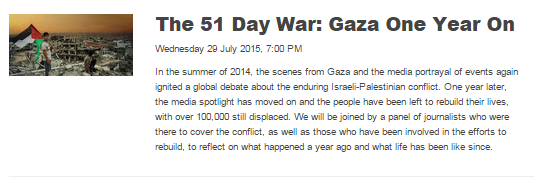At the time of this post, fires were still raging in the following Israeli towns: Bet Oren, the area between Ussafiya and Hik Creek, the Bar-Chai wildlife reserve, Nir Etzion, and Ein Hod. Ground and air units were tackling the blazes, but officials were saying that efforts to put out the Carmel fires will likely last another week. Ten-thousand acres (40,000 dunams) have burned so far in the fire that killed 41 people and left many others injured. PM Netanyahu is still calling world leaders seeking more firefighting planes – as the severity of the fire is well beyond the capacity of the small nation to handle it.
The Guardian’s lack of coverage on the fire, which Prime Minister Netanyahu has described as “catastrophic”, is quite glaring.
Harriet Sherwood, the paper’s Jerusalem Correspondent, who apparently is just across the border in Egypt, has filed two stories since the blaze began – one on what she characterizes as the anti-Arab racism of “extremist” rabbis in Safed, and another about shark attacks in Sharm el-Sheikh.
The Guardian’s Rachel Shabi is also, quite notably, missing in action.
Further, the Guardian made the editorial decision to publish a piece today about (British Labour Party Shadow Foreign Secretary) Yvette Cooper’s remarks that the UK should step up pressure on Israel to stop building “illegal” settlements in the West Bank by pressing for greater Europe-wide labeling of food exported from the “occupied territories”. Cooper called on the government to persuade the EU to introduce labelling that would identify goods produced by Israeli settlers.
The paper’s entire coverage of the crisis has consisted of two pieces – one perfunctory dispatch from correspondent, Haroon Siddique, based in London, and an AP piece they ran entitled, “Israel Forest Fire: European fire fighting planes fly in to help.”
The AP piece, despite its innocuous sounding title, clearly had another agenda. The story pivoted from a straight news story to critical polemic at this paragraph, which followed a passage commenting on Israel’s inability to contain the blaze without outside assistance:
“The sense of helplessness prompted outrage among Israelis”
Of course, its less than clear what the basis is for such a claim. The stories coming from the Israeli media are focused quite naturally on the fire, and on concerns by those who live, or have friends or family, in or near the effected regions.
But, it continues:
“Aluf Benn, a columnist for the Haaretz daily, said the country’s inability to control the flames proved it was not ready for a massive attack by the likes of Iran. He compared the fire to the fiasco of 1973, when Israel was caught off guard by a surprise military attack from Egypt and Syria.”
The piece then ends on an especially ugly note:
“Maariv columnist Ben Caspit noted that a country that carries out chilling military operations, leads the world in hi-tech and whose powerful economy emerged unscathed from the global crisis, is also the country “whose fire-trucks date back to the previous century, and a country that therefore finds itself caught, standing before the flames, with its pants down”.
The Guardian’s Schadenfreude in citing Caspit’s last phrase is simply palpable. While it’s not surprising that a columnist for Ha’aretz would provide such a quote, there is no evidence presented that anyone outside of the Israeli journalistic elite shares his view.
While, of course, Israel will, after the blaze is brought under control, assess its fire fighting capacity and attempt to make necessary improvements, the nation’s priorities right now consist of bringing the fire under control, protecting communities in its path, and housing those displaced by the blaze.
Glaringly absent from their coverage are the kind of human interest stories they excel at regarding Palestinian suffering. Where are the stories on location near the path on the blaze? Where are interviews with victims – those displaced as a result of the fire, as well as the family and friends of those killed? Also missing are stories of how the settler communities are offering to house and feed families of those displaced by the blaze.
The world’s leading liberal voice has an ideological tick which seems to render them simply unable to cast Israel as anything other than a Goliath inflicting harm on vulnerable populations or as a giant with “its pants down” – a political myopia on full display in their coverage (or, rather, lack of coverage) of the worst fire in the Jewish state’s history.




